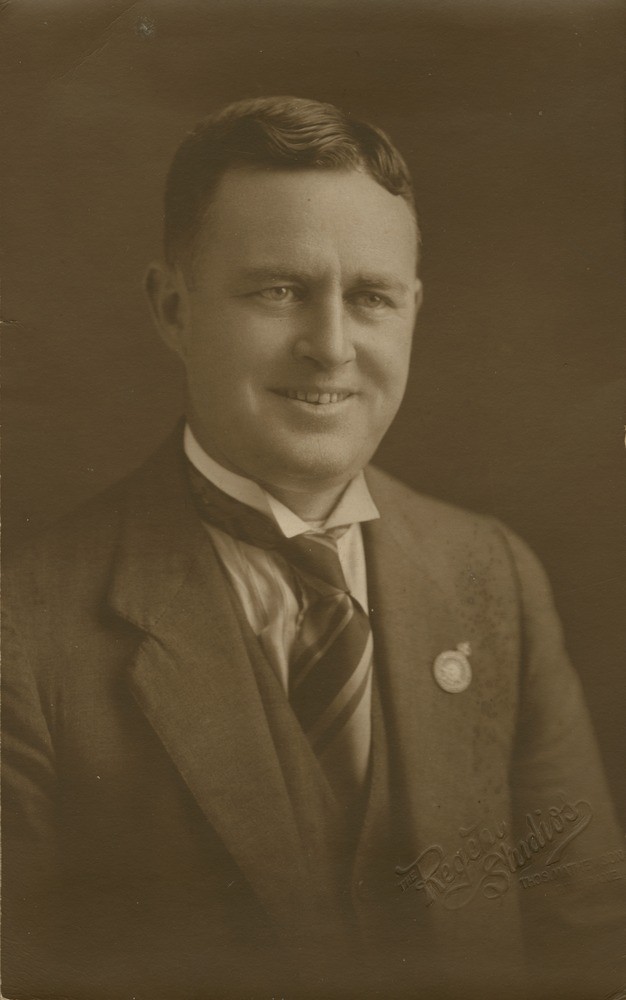
Portrait of Frank Chenery Junior wearing his Discharged Returned Soldier badge. John Oxley Library, SLQ, 30054/1
6425 Private Frank Chenery, a 26-year old clerk from Toowong, Brisbane, enlisted on 9 September 1916 with the 26th Battalion, 18th Reinforcement. He embarked from Sydney aboard HMAS Demosthenes A64 on 23 December 1916, and after further training in England, Chenery was taken on strength of 26th Battalion in France.
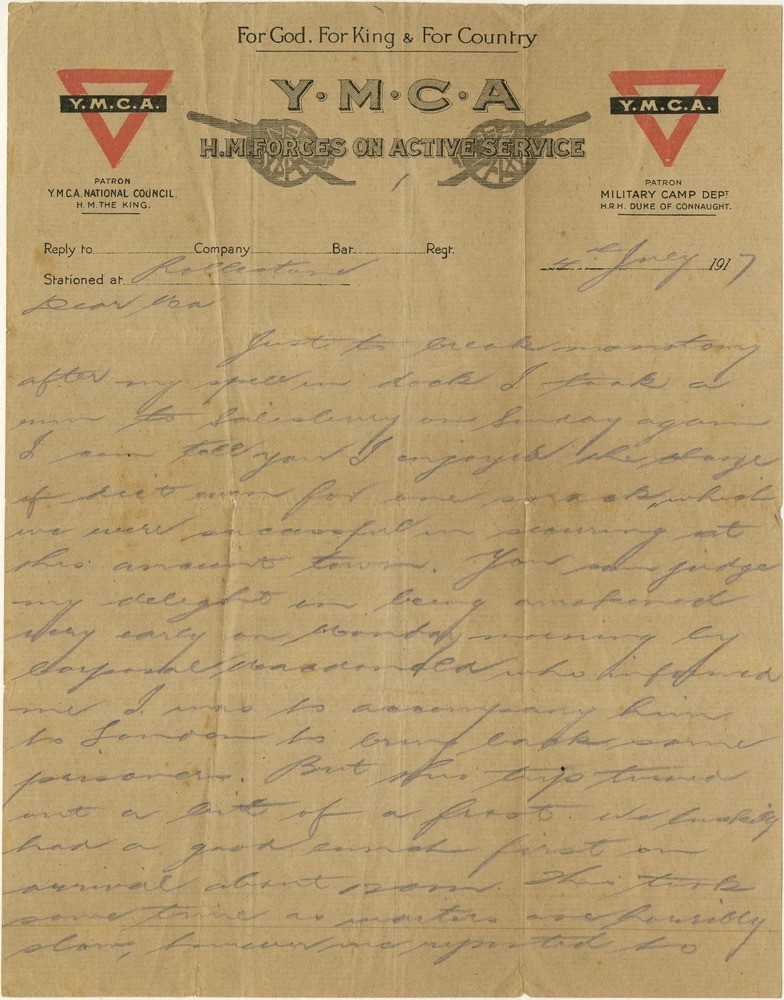
Letter dated 4 July 1917 from Frank to his mother, from Rollestone Camp. 30054/12
State Library holds the 30054 Frank Chenery Papers 1916-1919, which contains letters written by Frank to his parents Frank and Rachel Chenery, and to his Aunt May, while on active service. Many of the letters were written in 1917 while Frank was undergoing further training at Rollestone Camp, Salisbury. He describes the routine of camp life in detail, from the lovely countryside of weekly Saturday morning route marches, to pick and shovel work to load lorries with gravel. He laments the tedium of isolation when a case of mumps is discovered in his hut, but is delighted to take a trip into London to bring back a group of prisoners. Many of his observations are about his fellow soldiers in camp. He makes disapproving comments about 'shirkers' who are 'dodging' going to the front, but is glad his group of friends are a 'good crowd of chaps'.
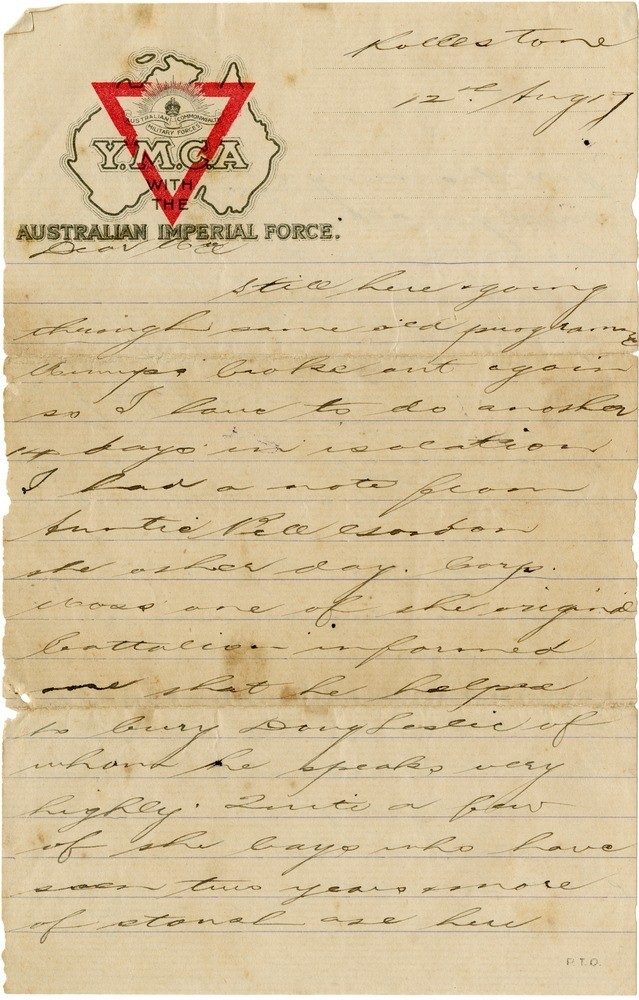
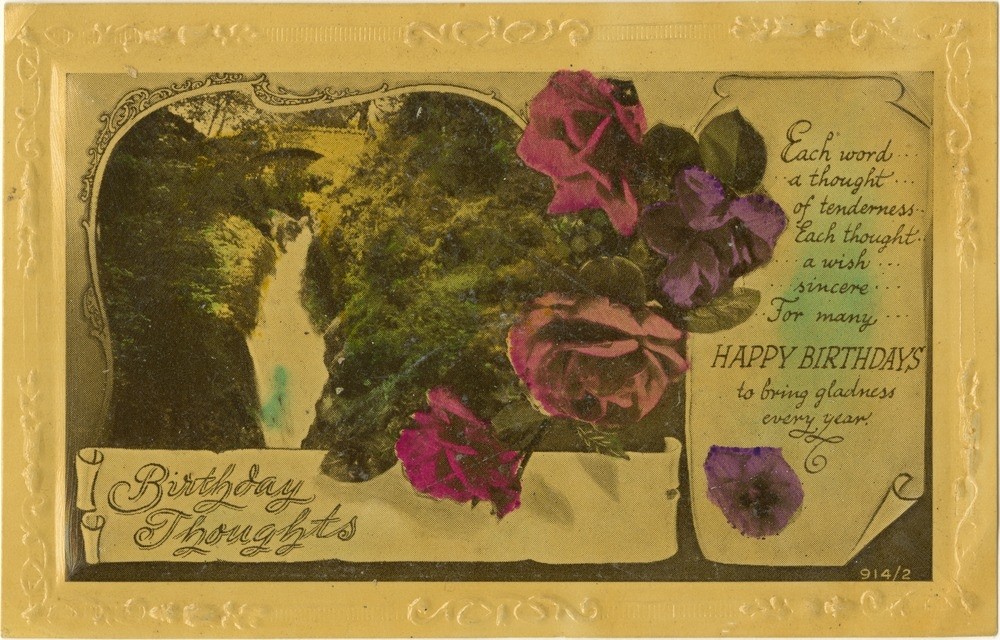
Postcard, undated, to Frank from all at Kerr Street, wishing him a happy birthday. 30054/28.
In October 1917, Private Chenery proceeded to France to join his unit at the front. His letter of 4 April 1918, written to his mother, mentions that he was now familiar with 'minnies' - German trench mortars called Minenwerfer. He ponders the work ahead to repel the 'German Push', and states that he has been doing patrol work and escorting, and moving around through farms and evacuated villages.
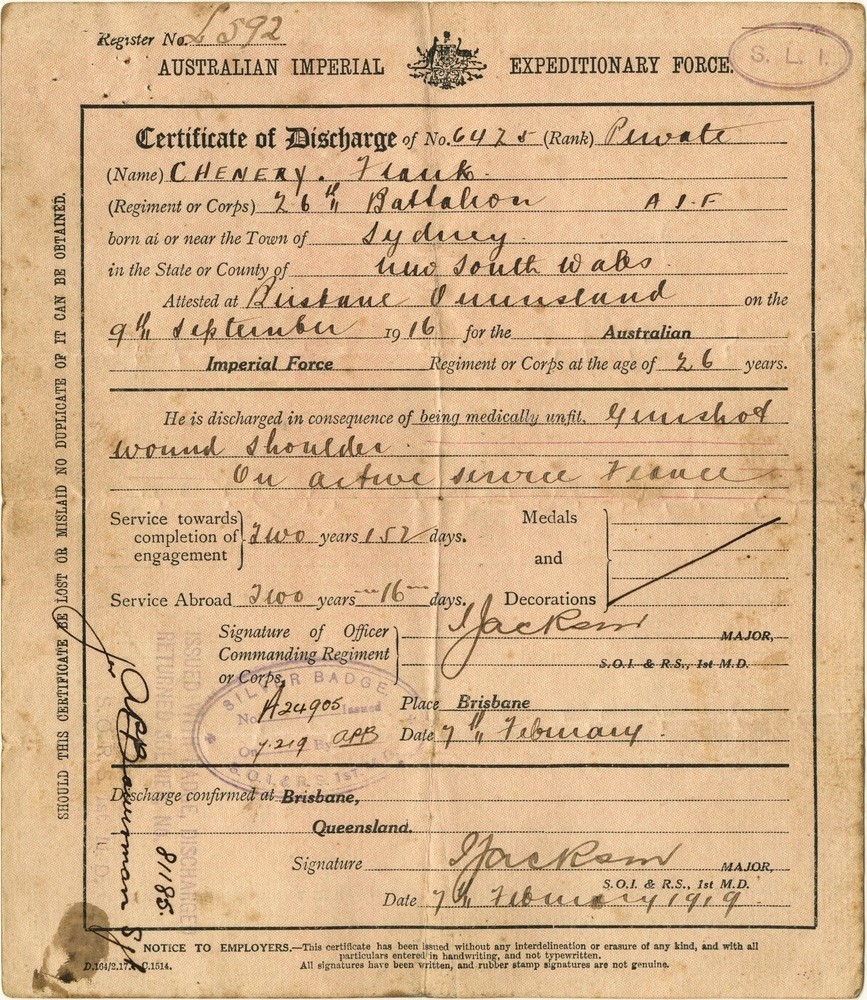
Certificate of Discharge for 6425 Private Frank Chenery, 26th Battalion A.I.F. 30054/29
On 18 July 1918, Frank was wounded in action with a severe bullet wound to his right shoulder and right thigh, and was invalided to England and admitted to the Fulham Military Hospital in Hammersmith, then the 1st Australian Auxiliary Hospital in Weymouth for convalescence. On 20 November 1918, immediately after the armistice, Chenery embarked for Australia on the Suevic, and was discharged in Brisbane on 7 February 1919.
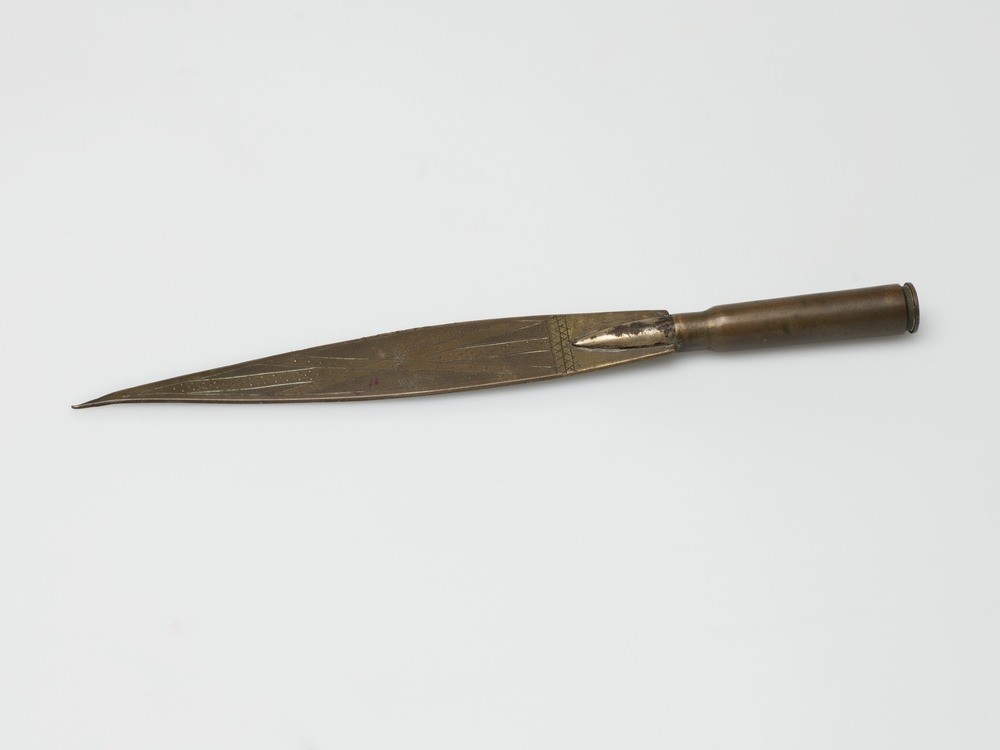
Etched and inscribed letter opener made from two bullets -one flattened to form the blade, and the other to form the handle. Inscription reads 'Campaqne 1914-15-16'. 30054/30
His collection includes his certificate of discharge, and a trench art souvenir from his war service - a brass letter opener made from two brass rounds.
Robyn Hamilton - QANZAC100 Content Curator, State Library of Queensland
Comments
Your email address will not be published.
We welcome relevant, respectful comments.